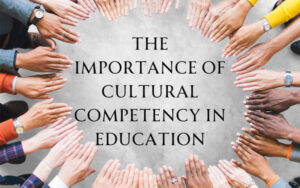Cultural exchange programs are vibrant pathways that offer individuals the opportunity to immerse themselves in a different culture, to learn, grow, and connect on a global scale. These programs are not just about traveling; they are educational journeys that foster mutual understanding, respect, and communication across various societies. In this blog, we’ll explore the diverse cultural exchange opportunities available to people from all walks of life.
Student Exchange Programs
For many, the adventure begins with student exchange programs. High school and university students can spend a semester or an academic year abroad, attending a local school or university and living with a host family or in student accommodation. Organizations like AFS Intercultural Programs and the Rotary Youth Exchange are pioneers in this field, facilitating exchanges that provide a deep dive into academic life in a different country.
The benefits of student exchange are manifold. Academically, students gain international perspectives in their field of study, often with opportunities to take courses not available in their home countries. Socially, they build lifelong friendships and develop a nuanced understanding of cultural nuances. The language skills gained through immersion are also invaluable, providing a solid foundation for future professional and personal endeavors.
Volunteer Abroad Programs
Volunteering abroad is another facet of cultural exchange. Programs like Peace Corps or Projects Abroad allow individuals to contribute to communities through teaching, environmental conservation, or health initiatives. Unlike typical travel, volunteering offers a chance to work alongside local people, understand their challenges, and make a tangible impact.
Such experiences are transformative. Volunteers often return with stories of profound personal growth, a redefined sense of community, and an ignited passion for global issues. The cross-cultural skills gained are highly regarded by employers, making this experience not just a moral but a career investment.
Professional and Academic Fellowships
For professionals and academics, fellowships offer tailored cultural exchange opportunities. The Fulbright Program, for example, provides grants for educators, scholars, and professionals to teach, research, and engage in meaningful cultural exchange. These programs often aim to solve global challenges through collaborative efforts, fostering an exchange of ideas and expertise.
Participants expand their professional networks and develop collaborations that transcend borders. On returning home, they bring back innovative practices and approaches that can shape their professional communities.
Arts and Cultural Exchange Programs
The arts are a universal language, making cultural exchange through arts programs particularly impactful. Organizations like the British Council and the International Artists Exchange Program sponsor artists to create and showcase their work abroad. These exchanges not only promote individual artists but also facilitate a dialogue between cultures through the medium of art.
Such programs highlight the value of diversity in creative expression, challenging artists to step outside their comfort zones and audiences to appreciate new perspectives. These exchanges often lead to groundbreaking works that reflect a confluence of cultural influences.
Youth Camps and Workshops
Youth camps and workshops, such as those organized by CISV International, provide younger participants with early experiences of cultural diversity. These short-term programs include activities designed to build leadership skills, foster teamwork, and promote peace education among international groups of youth.
The impact of these camps on young minds is significant. They cultivate a sense of global citizenship and a foundation for understanding and resolving cultural conflicts, setting the stage for a more harmonious global community.
Virtual Exchange Programs
In our increasingly digital world, virtual exchange programs have gained prominence. These programs, such as the Stevens Initiative, connect classrooms across the world through online platforms, allowing students to collaborate on projects and engage in cross-cultural dialogues without leaving their home countries.
While different from physical exchanges, virtual programs offer accessibility and the chance to connect with peers globally. They also provide a valuable introduction to working in a globalized virtual workforce, developing digital communication and collaboration skills.
Exchange Programs for Seniors
Cultural exchange is not confined to the young. Programs like Elderhostel (now Road Scholar) offer travel and learning experiences for older adults. These programs combine education, travel, and cultural immersion, proving that the pursuit of understanding and connection knows no age limit.
Conclusion
Cultural exchange programs are a testament to the belief that education goes beyond classrooms and textbooks. They are about people, places, and experiences that shape our understanding of the world. Whether through student exchanges, volunteer work, professional fellowships, arts programs, youth camps, digital initiatives, or senior excursions, these programs weave together the tapestry of global cultures into our lives.
As the world becomes more interconnected, the need for such experiences becomes ever more crucial. They break down barriers and build bridges of understanding, fostering a global community that values diversity, embraces commonalities, and works together towards a shared future. The opportunities for cultural exchange are as varied as the individuals seeking them, each with the power to transform lives and create a more understanding world.


